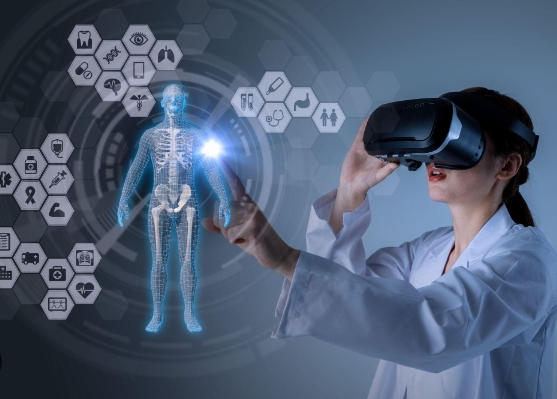In today’s fast-paced world, advancements in technology have fundamentally changed the way healthcare is delivered and received. With the rise of new innovations and cutting-edge developments, patient outcomes are being revolutionized in ways previously thought impossible. Here, we explore how new technology is transforming the landscape of healthcare and improving patient outcomes.
Enhanced Diagnostics and Treatment Planning
One of the key ways in which new technology is revolutionizing healthcare is through enhanced diagnostics and treatment planning. Advanced imaging techniques, such as MRI and CT scans, allow healthcare professionals to accurately diagnose and plan treatment for a variety of conditions. This precision enables more targeted and effective treatment options, leading to better patient outcomes.
Telemedicine and Remote Monitoring
The advent of telemedicine and remote monitoring has made healthcare more accessible and convenient for patients. Through virtual consultations and remote monitoring devices, patients can receive timely care and support from the comfort of their own homes. This technology not only improves patient outcomes by enabling early intervention but also ensures continuity of care, even during times of limited physical access to healthcare facilities.
Smart Wearable Devices
Smart wearable devices, such as fitness trackers and smartwatches, have become essential tools in promoting patient wellness and enabling proactive healthcare management. These devices can track vital signs, monitor activity levels, and provide real-time feedback on health parameters. By empowering patients to take control of their health and well-being, smart wearable devices contribute to improved patient outcomes and a more personalized approach to healthcare.
Data Analytics and Predictive Modeling
Data analytics and predictive modeling have revolutionized healthcare by enabling healthcare providers to derive valuable insights from vast amounts of patient data. By analyzing trends and patterns, healthcare professionals can identify high-risk patients, predict potential health complications, and tailor treatment plans accordingly. This data-driven approach not only leads to improved patient outcomes but also drives more efficient and cost-effective healthcare delivery.
Artificial Intelligence and Machine Learning
Artificial intelligence (AI) and machine learning are rapidly transforming the way healthcare is delivered and improving patient outcomes. These technologies can analyze complex medical data, identify trends, and assist healthcare providers in making informed decisions. From enhancing diagnostic accuracy to personalized treatment recommendations, AI and machine learning are revolutionizing healthcare by streamlining processes, reducing errors, and ultimately improving patient outcomes.
In conclusion, the advent of new technology is revolutionizing healthcare in ways never before imagined. From enhanced diagnostics and treatment planning to telemedicine and remote monitoring, smart wearable devices, data analytics, and artificial intelligence, these advancements are reshaping the healthcare landscape and improving patient outcomes. As technology continues to evolve, we can expect even greater innovations in healthcare delivery and outcomes, ultimately leading to a healthier and more efficient healthcare system.

